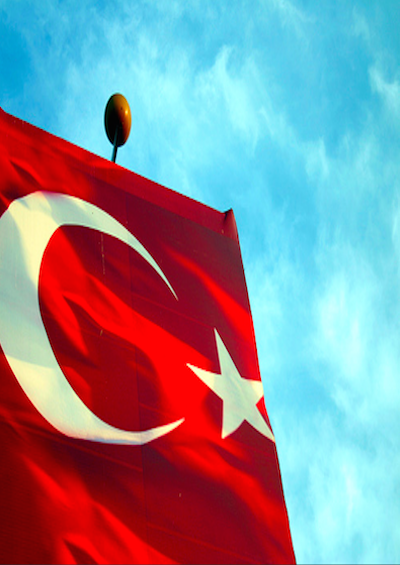In the aftermath of the June 7 elections, many coalition options are now being discussed in Ankara. TheAKP–CHP option deserves special attention, as it would bring the country’s two largest parties together.
The coalition could potentially end a protracted era of political polarization in Turkey. Here are some possible developments that could occur under this unusual partnership.
A temporary Erdogan retreat
An essential element for the CHP’s entry into the coalition would be for President Erdogan to use only his constitutionally mandated powers.
Since August 2014, Erdogan has often acted as an executive president. Erdogan could agree to stop running the country’s day-to-day affairs for now, if the CHP promised not to follow through on the corruption charges filed against him and his family members. As part of this deal, four AKP ministers also implicated in the corruption scandal could potentially be brought to justice.
Erdogan’s long-term vision would still be an amped-up presidency.
Historically, junior liberal parties tend to lose support in coalition governments when governing under conservatives as the senior partner. This was evident in the coalition of the Liberal Democrats and the Conservative Party in Britain.
The same was true in the case of the Free Democrats when in coalition with the Christian Democrats in Germany, and the Social Democratic Populist Party with the True Path Party in Turkey.
Erdogan’s ultimate vision in entering a coalition with the CHP would be that a premature coalition collapse could prompt a loss in CHP support.
This might allow the AKP to emerge stronger and armed with a constitution-changing majority to make him an executive-style president.
Union for Turkey’s disparate halves
The AKP and CHP represent Turkey’s two largest political parties and, as such, the country’s competing visions of Islamism and secularism.
An AKP-CHP coalition, favored by Turkish businesses and the markets, would usher in a period of co-existence, however uneasy, between these two movements.
In the past, their relationship has been characterized by a win-lose attitude.
In the 1990s, the secularists ran Turkey and often persecuted the Islamists. When Erdogan took charge as president, he, too, meted out similar treatment to the secularists.
An AKP-CHP government could mark the end of this two-decade feud.
Prominent cabinet positions for women
Women have been increasingly marginalized in AKP cabinets, relegated to the single portfolio of “family affairs.”
The most dramatic change in the new cabinet would be that, after many years under the AKP, women politicians from the CHP would hold key seats.
One such contender could be CHP deputy and party vice-chair Selin Sayek Boke, a renowned liberal economist, who could also be Turkey’s first Christian-origin minister since the end of the Ottoman Empire, if given a portfolio.
Regarding the economy, an AKP-CHP coalition could also witness the return of Kemal Dervis as a CHP cabinet member. Dervis was the architect of Turkey’s economic restructuring in 2001 and indirectly of its economic growth since then.
Strong popular and parliamentary majority
On June 7, the AKP and the CHP received 40.7% and 25.1% of the vote, respectively. This gave the AKP 258 seats in the Turkish legislature, with the CHP getting 132 seats.
An AKP-CHP coalition would thus represent 65.9% of the popular vote and hold 70.9% of the seats in the Turkish legislature, a total of 390 seats. This would constitute a strong mandate for governing.
Together, the AKP and CHP would have enough seats to make changes to the Turkish constitution. The coalition, should they desire to do so, could even revise the Turkish constitutional clause that states that constitutional amendments approved with 367 votes need not be approved through a popular referendum.
This might happen if the two parties agree on a new social consensus that allows both the parties’ visions of Turkey to flourish simultaneously.
Challenges on domestic issues
The major differences between the two parties would center on domestic politics, mainly education policy.
The CHP is keen to revive Turkey’s secular education system created by Kemal Ataturk, founder of the Turkish republic.
 Geostrategic Media Political Commentary, Analysis, Security, Defense
Geostrategic Media Political Commentary, Analysis, Security, Defense





